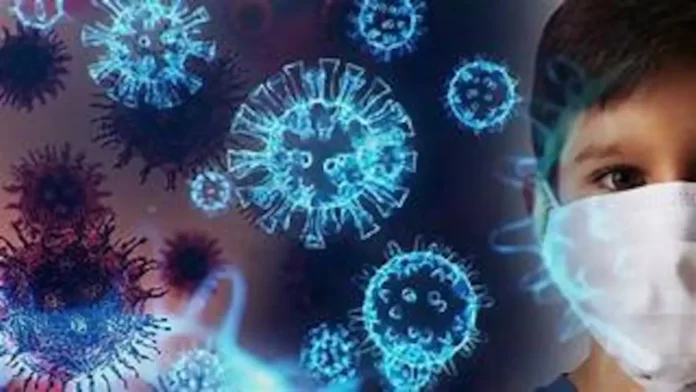As of May 2025, both Hong Kong and Singapore are experiencing a significant surge in COVID-19 cases, driven largely by new Omicron sub variants, increased public interaction, and waning immunity. Health authorities in both cities have issued warnings and implemented precautionary measures to limit the spread and safeguard public health systems.
In This Article:
Hong Kong: Record Cases and Rising Hospitalizations
Hong Kong’s Centre for Health Protection has observed a sharp increase in COVID-19 positivity rates. The percentage of respiratory samples testing positive has reached its highest level in the past year. In the week ending May 3, the city reported 31 severe cases—marking the highest weekly count in 12 months.
Notably, high viral concentrations have been detected in sewage samples, signaling widespread community transmission. The health department has urged vulnerable groups to receive booster doses to prevent severe illness and death. Elderly citizens and individuals with underlying conditions remain the most affected, contributing to rising hospital admissions.
Singapore: Cases Nearly Double in One Week
Singapore’s Ministry of Health (MOH) reported a nearly 90% week-on-week increase in infections—from 13,700 to 25,900 cases between May 5 and 11. This dramatic rise marks the most substantial COVID-19 update from the nation in nearly a year.
Hospitalizations have also spiked. The average number of daily admissions rose from 181 to 250. In response, public hospitals have been advised to postpone non-urgent elective surgeries and prioritize the Mobile Inpatient Care@Home program to reduce strain on healthcare facilities.
Health Minister Ong Ye Kung has advised citizens to start wearing masks again, especially in crowded places. According to him, Singapore is entering a new wave of infections that is expected to peak between mid and late June.
Variant Watch: The FLiRT Sublineages
The latest wave is linked to the emergence of Omicron subvariants KP.1 and KP.2, collectively referred to as FLiRT variants. These two sublineages currently make up more than two-thirds of Singapore’s reported cases.
The World Health Organization (WHO) designated KP.2 as a variant under monitoring on May 3. While no evidence yet suggests that these variants are more severe than previous strains, their increased transmissibility is causing concern.
Key Symptoms Observed
The common symptoms seen during this wave include:
- Cough and sore throat
- Nausea and vomiting
- Conjunctivitis (pink eye)
- Brain fog and fatigue
Doctors are warning that these symptoms can overlap with seasonal flu, and citizens are encouraged to test and isolate if any such symptoms appear.
Vaccination Drive and Booster Recommendations
Authorities in both Hong Kong and Singapore are pushing for higher vaccination and booster shot rates, particularly for older adults and immunocompromised individuals. Those who have not taken a booster shot in the past year are being encouraged to do so immediately.
In Singapore, individuals aged 60 and above, medically vulnerable groups, and residents of aged care facilities have been prioritized in the current vaccination drive.
Measures to Support Healthcare Infrastructure
To avoid hospital overcrowding, Singapore has issued directives for:
- Delaying elective and non-essential surgeries
- Expanding home-based care programs
- Using transitional care facilities for stable patients
Hong Kong is also strengthening its hospital capacities and monitoring sewage surveillance data to preemptively identify outbreak hotspots.
Regional Developments in Asia
The resurgence isn’t limited to Hong Kong and Singapore. Other Asian countries are seeing a similar trend:
- In mainland China, the Chinese Centre for Disease Control and Prevention (CDC) reported that hospital positivity rates more than doubled in the five weeks leading to May 4.
- In Thailand, the Songkran festival in April contributed to a noticeable spike in COVID-19 cases, according to the Department of Disease Control.
Final Advisory
Health experts are urging citizens to:
- Wear masks in crowded indoor areas
- Maintain hygiene and sanitation
- Avoid unnecessary travel if symptomatic
- Receive booster vaccinations as per medical advice
The recent resurgence serves as a reminder that while COVID-19 may no longer be a global emergency, the virus continues to evolve, and ongoing vigilance remains essential.
By – Nikita




